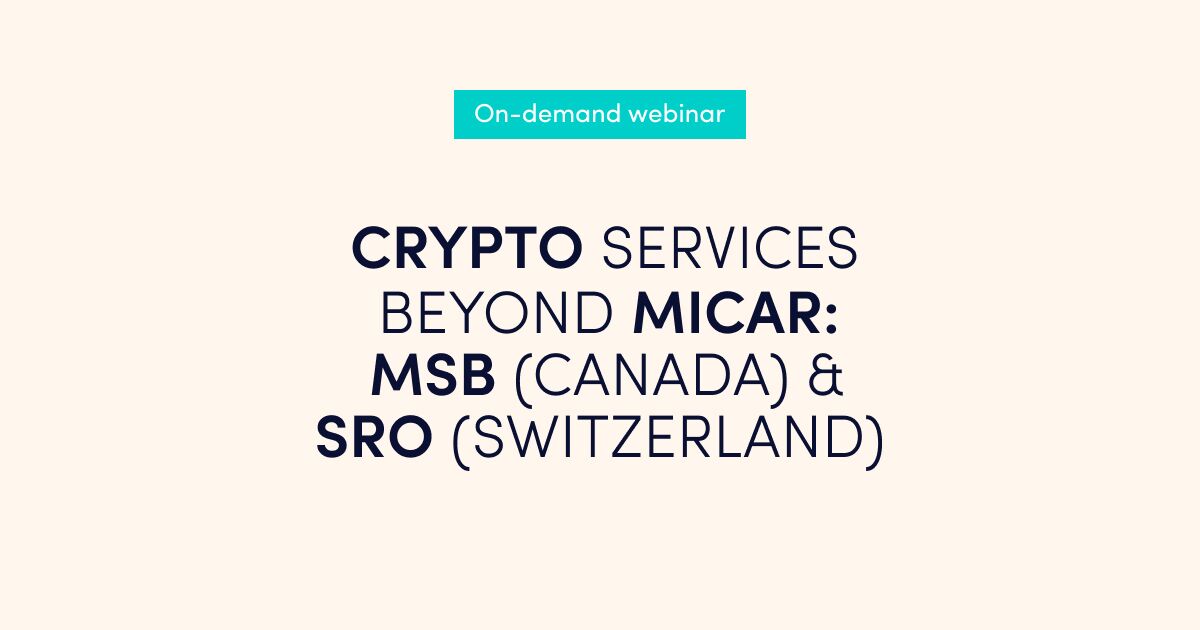Advapay Malta
Expert consulting services for companies establishing a financial institution offering payment and/or electronic money services in Malta, with ongoing support to ensure long-term compliance and growth.

Proven Local Regulatory Expertise
Direct experience in financial services, fintech, and regulatory compliance in Malta and close relationships with the regulator.

End-to-End Support
Assistance with incorporation, corporate structuring, tax planning, legal and regulatory frameworks, operations, and payment infrastructure.

Regulatory Compliant Technology Solutions
Expert guidance on selecting and integrating core banking or payment software to ensure seamless operations.
Why Malta
Malta provides a well-established regulatory framework and a thriving financial ecosystem, making it a prime destination for payment and e-money institutions.
01
Ideal Start-up Location
Malta has a well-regulated banking and non-banking sector. The fintech market in Malta is growing at an accelerated and unprecedented rate, largely because Malta has positioned itself as an alternative finance hub to Dublin, London, and Luxembourg. Malta provides a tailor-made environment highly conducive to fintech firms. The small size of the country and low costs make it an ideal fintech start-up location.
02
One of the most popular choices in the EU for Payment and Electronic Money Institutions
In 2024, Malta issued 12 licenses, securing the top position alongside Germany and highlighting its strong regulatory presence.
There are 36 e-money institutions and 30 payment institutions authorised by the MFSA to operate in Malta (as of March 2025).
03
Passporting Rights
Malta has a well-regulated banking and non-banking sector. The fintech market in Malta is growing at an accelerated and unprecedented rate, largely because Malta has positioned itself as an alternative finance hub to Dublin, London, and Luxembourg. Malta provides a tailor-made environment highly conducive to fintech firms. The small size of the country and low costs make it an ideal fintech start-up location.
04
English-Speaking and Highly-skilled Workforce
Malta boasts a highly educated, multilingual workforce, with English as one of its official languages. The country is home to skilled professionals in accounting, law, risk, compliance, IT, and financial services.
05
Tax Efficiency
A 5% effective corporate profit tax applies if companies are owned by non-residents or by residents without domicile in Malta. This unique structure complies with “subject to tax” regulations of double tax treaties: companies pay a profit tax of 35%, and the recipient of dividends receives a 30% refund (or 6/7 if it is a corporation whose beneficial owners are not both resident and domiciled in Malta).
Our services for licensing of E-money and Payment Institutions in Malta
Advapay offers comprehensive services to launch and scale your payment institution or e-money institution in Malta.
01
Regulatory Licensing & Corporate Governance
End-to-end assistance with EMI/PI licensing applications, business plan development, and regulatory submissions.
Compliance framework design for PSD2, EMD, AML/CFT, DORA, and financial crime prevention.
Corporate Formation & Structuring – Shareholder agreements, governance models, KYC compliance, and entity registration.
Board Governance & Directorship Services.
Corporate bank account setup, safeguarding solutions, and transaction structuring.
General Company Maintenance Services.
02
Ongoing Compliance, AML & Risk Management
Ongoing MFSA/FIAU reporting, audits, and inspections.
AML/CFT Advisory – Risk assessments, transaction monitoring, remediation plans, and sanctions screening.
Compliance Outsourcing & Key Function Holders – MLROs, Risk Officers, Compliance Officers, and Internal Auditors.
Handling regulatory inquiries, assisting in regulatory visits, mock inspections, and audit preparation.
Board & Staff Training.
03
Operational Readiness & Business Support
Technology & IT Infrastructure Guidance
Premises & Business Setup
Senior Management Recruitment – CFOs, CTOs, COOs
Business Continuity & Crisis Management Strategies
04
Data Protection, GDPR and DoRA Compliance
DPIAs & Compliance Audits – Internal process reviews and regulatory compliance strategies.
Data Security & Governance Policies – Breach handling and remediation planning.
Regulatory Liaison & Representation – Compliance interactions with the IDPC (Information & Data Protection Commissioner).
Ongoing DPO Support – Training, compliance oversight, and regulatory updates.
DoRA Compliance – Ensuring compliance with the Digital Operational Resilience Act for financial services firms, focusing on operational resilience, ICT risk management, and incident reporting.
05
Tax Structuring, Accounting & Financial Services
Tax-efficient structuring for international businesses.
VAT & Tax Compliance – Registration, filings, refund applications, and EU cross-border reporting.
Bookkeeping & Payroll Processing – Financial reporting, employee tax compliance, and salary structuring.
Regulatory Tax Representation – Liaison with tax authorities, objections, and appeals support.
06
Employment, Relocation & Citizenship
Assistance with EU & non-EU employment relocation.
Employer & Employee Registration – Social security, tax, and employment authority filings.
HR Compliance & Advisory – Drafting employment contracts, regulatory guidance, and onboarding processes.
Citizenship by Naturalisation (ESDI) – ID cards, tax advice, and personal affairs.
Fintech Legislation and Regulation in Malta
Legislation
The primary legislation regulating financial institutions in Malta is the Financial Institutions Act (Chapter 376, Laws of Malta), which transposes the EU Payment Services Directive 2015/2366 and the EU Electronic Money Services Directive 2009/110.
The regulator
The Malta Financial Services Authority (MFSA) is the single regulator for the financial services sector in Malta.
E-money and Payment Institution license in Malta: main regulatory requirements
Fit & Proper Test
The MFSA requires that all qualifying shareholders (those holding 10% or more of shares or voting rights, directly or indirectly), as well as directors, meet the highest professional, ethical, and business standards. This includes submitting a personal questionnaire and providing due diligence information to ensure they are fit and proper to hold such roles. Senior managers and key function holders (e.g., CEO, CFO, Compliance Officer, Risk Officer) are also subject to these standards.
Four Eyes Principle
A financial institution in Malta must comply with the “four eyes” principle, ensuring that at least two competent individuals effectively direct the business of the institution.
Safeguarding Customers’ Funds
To comply with regulations, a licensed financial must keep client funds separate from the company’s private funds.
Minimum Initial Capital Requirements
Initial Capital Requirements range from EUR 25,000 to EUR 125,000, depending on the payment service, or EUR 350,000 for e-money institutions.
Reporting Requirements
Quarterly/Periodic Reporting: Financial institutions may be required to submit financial and statistical data to the MFSA or the Central Bank of Malta on a quarterly basis, while the MFSA reserves the right to conduct inspections or spot checks at any time.
Annual Reporting: The license holder must submit the Annual FI Return to the MFSA within one month of the accounting reference date, accompanied by the signed Representations Sheet, and update it with audited financial data once available.
Own Capital Requirements
A Payment Institution (excluding those providing only payment initiation services or account information services) must ensure that its ongoing funds never fall below the required initial capital or 0.25%-4% of the total payment transaction amount, depending on the volume.
A licensed e-money institution must maintain funds above the required initial capital or 2% of the average outstanding electronic money.
E-money and Payment Institution license in Malta: documents and information submitted
01
A Programme of Operations
Setting out, in particular, the type of activities envisaged to be undertaken.
02
Copy of the Memorandum and Articles of Association of the proposed institution.
03
Evidence of initial paid-up capital and 3-year projected own funds, calculated in line with FIR/ 03 2011 01, whichever is higher.
04
A Business Plan Including the structure, organisation, management systems, governance arrangements, and internal control systems of the Institution.
05
A Forecast Budget Calculation (financial projections) for the first three financial years.
06
A Description of the Internal Control Mechanisms.
07
A Description of the Structural Organisation.
08
A Description of the Audit Arrangements it has set up.
09
Compliance Monitoring Programme
10
Security, data & risk policies:
ICT Security Risk Policy
Sensitive Payment Data Policy
Business Continuity Policy
Statistical Data Policy
ICT Security & Risk Policy
11
AML Manual.
12
Systems Auditor Report.
13
Safeguarding Policy.
14
Internal Audit Programme
15
Audited Financial Statements for the last three years (N/A if the entity to be licensed isn’t incorporated yet).
16
The identity of all officers and controllers of the institution; all shareholders holding, directly or
indirectly, a qualifying shareholding and the individuals who will be effectively directing the business of the institution.
17
Risk Management Manual.
18
Outsourcing Policy.
19
Transparent and consistent lines of responsibility and effective procedures to identify, manage, monitor, and report the risks to which it is or might be exposed.
20
Completion of all necessary MFSA application forms, assessments, and questionnaires.
Application Process
1
Preparatory and License Application:
• Pre-application: submission of a statement of Intent to the MFSA.
• Application Submission
• Review and Feedback
2
Licensing Approval in Principle:
• Review and Recommendation
• Finalising Matters: the applicant must resolve any outstanding issues.
• Licence Issuance
3
Post-Licensing/Pre-Commencement:
• Pre-Commencement Requirements: these must be satisfied before starting business operations.
• Commencement
Schedule a free consultation with our expert
Get personalised guidance on the licensing process for payment institutions or e-money institutions in Malta
Talk to our expert
Jurisdictions
we cover
We have a strong focus on fintech businesses like digital banks, e-wallets, fiat-crypto wallets, e-commerce banking and remittance.





















